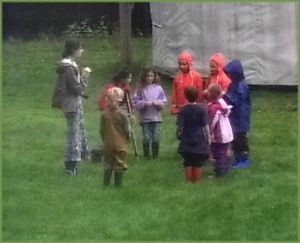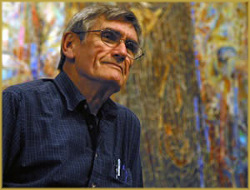Phases of the Moon, the newsletter of the Maine NVC Network
Volume Five, Issue Three:
Using NVC to craft new strategies for classroom discipline.
Our newsletter appears once a month around the time of the full moon. Our purpose is to contribute to the NVC learning of people who have taken at least an NVC Level 1 workshop, and help us stay connected as we endeavor to deepen a culture of peace within ourselves, our families and the world. We believe a Level 1 offers so many new ways of thinking that additional support for learning and integration could be helpful.
We endeavor to make each edition informative, connecting, inspiring and fun. Please let us know how the newsletter might contribute to your NVC well-being.
Our feature article this month is the second in a series by guest contributor Amanda Blaine, a public school teacher and graduate of the Maine NVC Integration Program.
Contents
- Feature: A Different Kind of Discipline, by Amanda Blaine
- Upcoming Trainings
- Monthly Empathy Circle
- Poetry Corner
- Opportunities to Volunteer
- Celebration
- Paid Announcements
A Different Kind of Discipline
by Amanda Blaine
Learning NVC has helped me articulate why I don’t believe in traditional school discipline. Discipline, according to Google, is "the practice of training people to obey rules or a code of behavior, using punishment to correct disobedience." Can you see why discipline is at odds with NVC consciousness? When people obey out of fear of punishment, they are not serving the life-giving needs within them. They might obey in the short or even long term, but ultimately they and the rest of us will pay. We can see the payoff: high rates of stress, depression, incarceration, and general unhappiness in our society.
But don’t we need discipline in the classroom? How else will the students learn?
As far as I can tell, students, teachers, and parents want discipline because of several deeper needs: order, harmony, justice or fairness, learning and safety, among others. Classroom discipline techniques are, in my experience, often tragic strategies to address these needs, because they create temporary compliance while stifling creativity, autonomy, and interdependence.
What else is there, then?
Last month I wrote about using NVC as a teacher, beginning with my own internal practice. I recommend this as a place to begin the shift from discipline to something more transformative. I gave the example of a student calling another student a name. (read about it here) I’ve started with that example and created a composite of several real life incidents to show how this looks in my classroom.
Once I told the class how much I wanted everyone to feel safe to learn in my classroom, the atmosphere shifted — everyone was no longer waiting for the ax to fall. The student who called the other student a nerd spoke up. "I’m sorry," he said, "I was just kidding. Chris is my friend and he knows that." The student to whom he said it agreed: "We’re friends, it’s fine." That set off an epiphany for me; suddenly, I was so grateful for the clarity and opportunity I now had! I thanked them both for taking the chance to speak up, and also for helping me clarify what was REALLY alive in me. "I’m actually appreciating Tom for making that comment just now. It’s not just Tom; I’ve been hearing comments like, ‘You’re such a nerd’ often lately, and it wasn’t until he said it just now that I realized why I’ve felt so uncomfortable. I so much value curiosity and a supportive environment in here, I so much want you all - and me, too! - to be free to explore what is interesting to you and to discover new things without fearing that you will be rejected by your peers because of it. In fact, this has given me an idea I’d like to try tomorrow — thanks again, Tom!"
I then asked the whole class to explore with me why being a nerd would be an insult in the first place. They brainstormed about why someone would call someone those names: they want to belong, they are afraid that they can’t do well, they want to succeed but are afraid that they can’t so they try to have power in a different way.
The next day, my co-teacher and I wore badges that said, "Proud to be a Nerd" with a pro-learning definition of nerd on it. Immediately we started getting requests and by the end of the morning, most of our students, and plenty of students who were not ours, were wearing them. The student who had made the initial "You’re such a nerd!" comment was helping to hand them out, making sure to tell everyone that he was responsible for the trend. My sense is that when he was calling his friend a nerd it was because he did not feel as comfortable raising his hand to participate as his friend, that ultimately he wanted to have some power, that he wanted to matter. By being a pioneer in the "Proud to Be a Nerd" campaign, he could clearly experience mattering in a way that also attended to the need for everyone to be welcome and comfortable.
I’m noticing a hesitation to share the example I just shared because it appears that NVC is "fast." Most of my examples are much slower. Often, after pausing in the moment when I have been triggered by something, I tell the class or the individual that I am going to take some more time to find out what the incident has brought up in me. I usually give a specific time: "I’d like to come back to this tomorrow, after I’ve had a chance to sort out what I’m feeling and why."
Sometimes I don’t have that much self-connection in the moment, and have asked students to stay after class to discuss something they did. By the time class is over, I might at that point have enough self-connection to notice I’m still feeling triggered and say, "Let’s talk about this tomorrow. Right now I’m still angry and I don’t think either of us would be happy with what I might say. Does that work for you?" As you might have guessed, I haven’t yet had a student who preferred the immediate conversation.
Later, when I have some time alone or with an empathy buddy, I explore what feelings and needs the incident has touched in me. Once I’ve had empathy for myself, I usually spontaneously become curious about the student or students involved, and start to sense what beautiful needs were alive in them when they made the choices that I might have earlier been experiencing as "wrong."
The next day, I begin the conversation by making empathetic guesses about what was alive in them. At that point, neither of us is triggered. Often the student her or himself will preempt me and speak first, usually to apologize.
One student, the day after repeatedly interrupting me by making funny comments when I was giving instructions on a test, jumped in with: "I was being stupid. I shouldn’t have done it."
I wanted to go beyond his judgments of himself so I guessed what needs he was attending to: "I’m guessing you just wanted to have some fun and humor in the day? You like to interact with the class and get everyone involved?"
|
He seemed surprised, and agreed. I followed up: "That’s one of the things I like about you! I love how much you connect with everyone and how much joy you bring to the class! I also really see you as a leader in this class and I realize the reason I got angry is because I would like your support in creating the classroom atmosphere that I think all of us would enjoy." I didn’t have to make a specific request for support because he thought of some of his own. We agreed that we would check back in with each other in a few days. From then on, it seemed to me that we were allies rather than adversaries. Both of us wanted the class to be enjoyable and inclusive, both of us wanted the time to be meaningful. I’ve shared with you a few ways I use NVC internally in my classroom. My students don’t need to have any particular skills. They don’t need to know anything about needs or feelings or observations. But these examples are between my students and me — I am still the center of these interactions. While they attend to the needs for order, harmony, justice, and safety, they don’t address two other needs that are at the center of my teaching objectives: autonomy and interdependence. My favorite strategy for "discipline", one that nourishes all of these needs, is class meeting. This requires a bit more investment of classroom time and resources, but the pay off is enormous. Next month, I’ll tell you about class meeting. If you want a preview, check out the book Positive Discipline in the Classroom. I began there and have modified it as my NVC consciousness has grown. Amanda Blaine is a public school teacher and graduate of the Maine NVC Integration Program. After teaching on the coast of Maine for six years, she is taking the year off to spend time with family, hike, and deepen her NVC learning with the Bay NVC Leadership Program. In the summer she works as a dialogue facilitator at Seeds of Peace International Camp. |
Suggestions for Further ReadingHere are some other resources I have found helpful. Some are explicitly NVC books, others I have modified and/or used selectively.
|
Upcoming Trainings
Trainings listed here are in the Maine region. If you wish to list an event, please follow our guidelines for submission. Please note that both certified and non-certified trainers, (who are willing to follow certain requirements of the Center for Nonviolent Communication), may be leading the posted trainings. Listing here does not imply endorsement by the Maine NVC Network of the trainer or the event.
March 22-23, 2014, Belfast, ME
From Conflict to Connection: the basics of Nonviolent Communication
A fundraiser for WERU Community RadioTaught by Peggy Smith /
__________________________________________________________
April 12-13, Unity, ME
April 12: The Healing Power of Empathy
& Transforming Power Dynamics in Relationships
April 13: The Art of NVC Dialogue
These days can be taken individually, or combined for a powerful NVC weekend.
The two days together are equivalent to a Level 2 workshop.
Taught by Peggy Smith / ![]() details and registration
details and registration
__________________________________________________________
July 28–August 1, Belfast, ME
Sustainable Communication: The Theory & Practice of Nonviolent Communication
A three-credit course offered by the University of Maine System at the Hutchinson Center, Belfast. This course is part of the Peace & Reconciliation Program at the University. No pre-requisites. Perfect for professionals seeking recertification credits while learning a specific, powerful process.
Taught by Peggy Smith / ![]() details and registration
details and registration
__________________________________________________________
SAVE THE DATES! 2014-15 NVC Integration Program will take place on these dates:
Sept. 5-7, 2014
Oct. 24–26, 2014
Jan. 30–Feb. 1, 2015
April 10-12, 2015
June 5–7, 2015
Taught by Peggy Smith and Leah Boyd
![]() details and registration
details and registration
Love, Maybe
|
Dr. Marshall Rosenberg, the originator of Nonviolent Communication and founder of The Center for Nonviolent Communicationsm has been named to a list of 100 Most Spiritually Influential Living People of 2014. Read more
Call for VolunteersThe health of the Network depends on the joyful efforts of all who yearn to bring nonviolent consciousness to our region.
|
Paid Announcements | |
Clarity Services, LLC
|
Open Communicationwelcomes individuals and couples, who want NVC-based support, to meet with them at their new office in Belfast, ME
|



